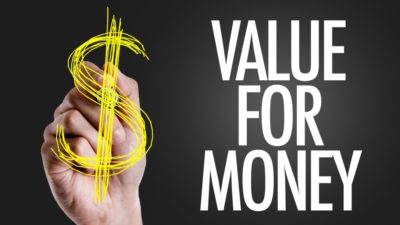Loblaw Companies Ltd. (TSX:L) is spending $1.3 billion renovating 500 stores across the country and opening 30 new locations in 2017. That brings its spending tally to $3.5 billion over the past three years.
For most businesses, this kind of expenditure would be a tremendous burden, but for Loblaw, a cash flow machine, it’s just another day at the office. Not only do shareholders benefit from this capital-allocation decision, but so too do Canadians; more than 10,000 jobs will be created in retail, the wholesale trade, and construction.
“Our investment will create improved retail experiences for customers and local jobs for communities,” said Galen G. Weston, Loblaw chairman and CEO, when announcing the $1.3 billion plan. “Our focus is clear: Across our network, we will provide greater access to fresh, affordable, innovative food and more robust health and wellness services for Canadians.”
Loblaw proves big business can have a positive effect on the economy while still making a significant profit for shareholders.
Since Galen Weston closed the deal to buy Shoppers Drug Mart in March 2014, Loblaw’s free cash flow has grown four-fold to $2.3 billion. Before Shoppers, a $1.3 billion expenditure would have eliminated its free cash flow almost entirely. Now, it represents just 37% of its annual operating cash flow.
Over the past three years, Loblaw has converted 64.4% of its EBITDA to free cash flow (the higher, the better), which gets allocated to dividends, share repurchases, debt repayment, acquisitions, and working capital. These are all important aspects of capital allocation. If done poorly, a business loses its competitiveness.
Metro, Inc. (TSX:MRU) converted just 37.4% of its EBITDA to free cash flow in the past three years, suggesting it’s not doing nearly as good a job turning profits into free cash.
However, before you jump to any conclusions, it’s important to consider how each company generates its profits.
If a company borrows everything but the kitchen sink to generate higher revenues and profits, it’s not nearly as efficient as it would be growing them internally by entering new businesses (Loblaws and PC Financial, etc.), improving productivity, and cutting costs.
At the end of fiscal 2016, Loblaw had $24.7 billion in invested capital. After paying out $425 million in dividends, Loblaw’s return on invested capital was 2.3%. Meanwhile, Metro had $4 billion in invested capital in fiscal 2016. After paying out $127 million in dividends, its return on invested capital was 11.1%, or five times greater than Loblaw.
While Metro is doing a better job of generating profits from its capital structure than Loblaw is, at the end of the day, cash is king, and Loblaw is a cash flow machine.






